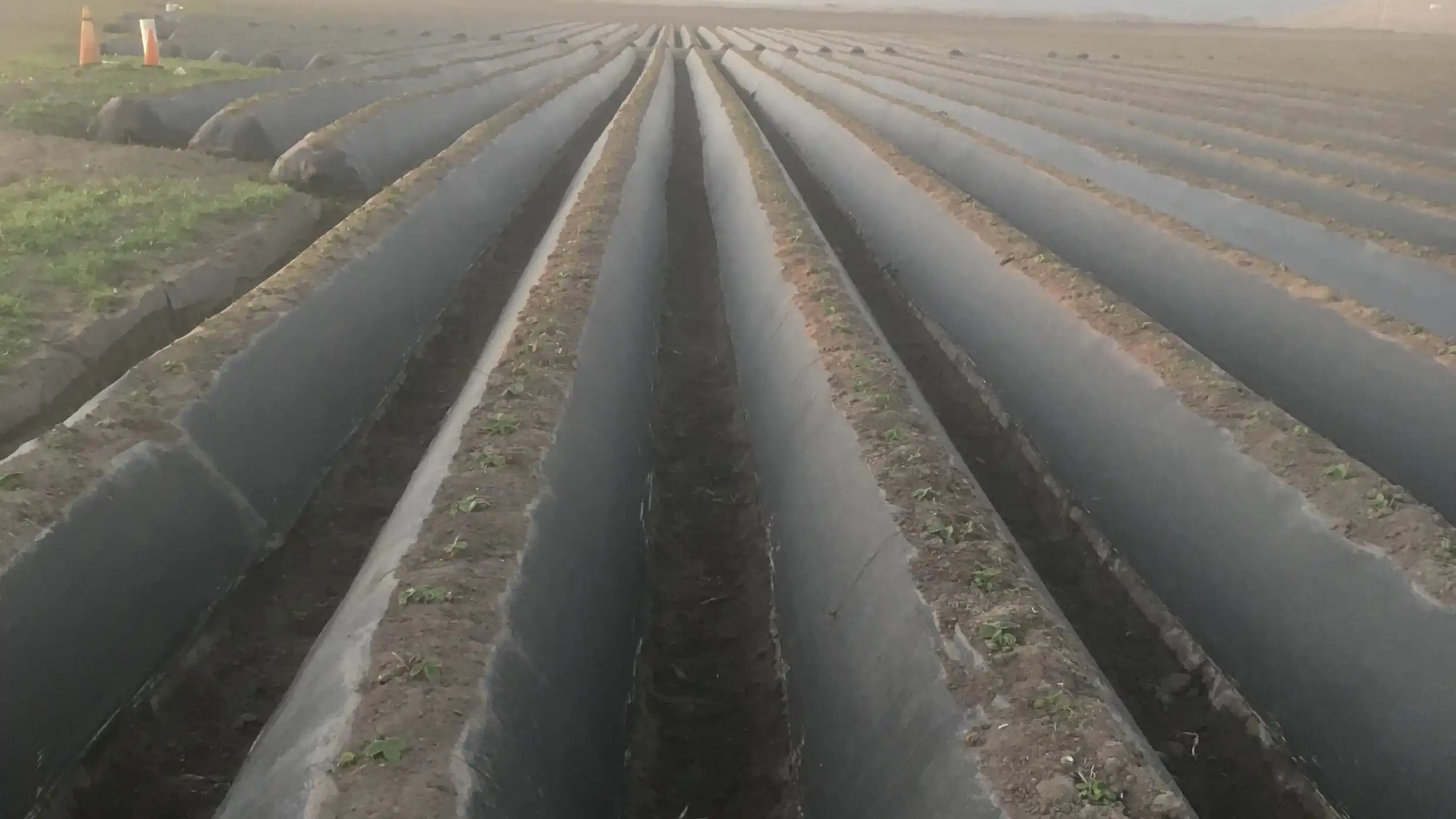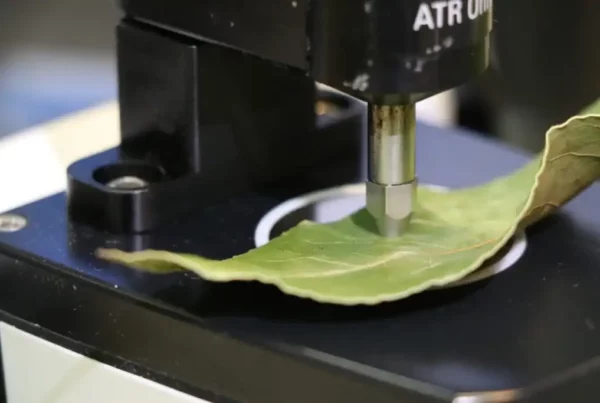Using plastic sheets for weed control, even under current best management practices, pollutes soil with macro- and micro-plastics and negatively affects critical soil functions, according to a study. The United Nations considers soil plastic contamination an environmental health and food security threat.
Around the world, over 25 million acres of farmland is seasonally covered with opaque plastic films used as “mulch” to prevent weeds, retain moisture, and warm soil—a practice known as “plasticulture.” Most studies have assessed plastic mulch soil contamination impacts using lab-based models or in experimental plots.
Ekta Tiwari and Seeta Sistla sampled 12 farm fields on California’s Central Coast—a region of global agricultural importance. The study was published in PNAS Nexus.
The authors surveyed fields after plastic mulch had been carefully removed for the season—a “best practice” to reduce plastic contamination in fields. However, all the fields surveyed had plastic contamination and the authors found up to 25 kg of macroplastic debris per hectare, covering up to 3.4% of field surface area. Microplastics were also found in all fields and microplastic concentrations positively correlated with macroplastic concentrations.
Key soil heath traits were negatively correlated with macroplastic accumulation even at relatively low contamination levels, while no relationships with microplastic contamination were detected. Thus, current “best practices” are causing subtle but deleterious effects to soil.
Because the use of plastic film mulch is rapidly expanding globally, the authors suggest exploring a non-plastic, biodegradable alternative to limit the threat to soil function and agricultural productivity caused by unabated plastic accumulation.
Read the paper: PNAS Nexus
Article source: PNAS Nexus via Phys.org
Image: Strawberries planted into mulched beds. Credit: Seeta Sistla







